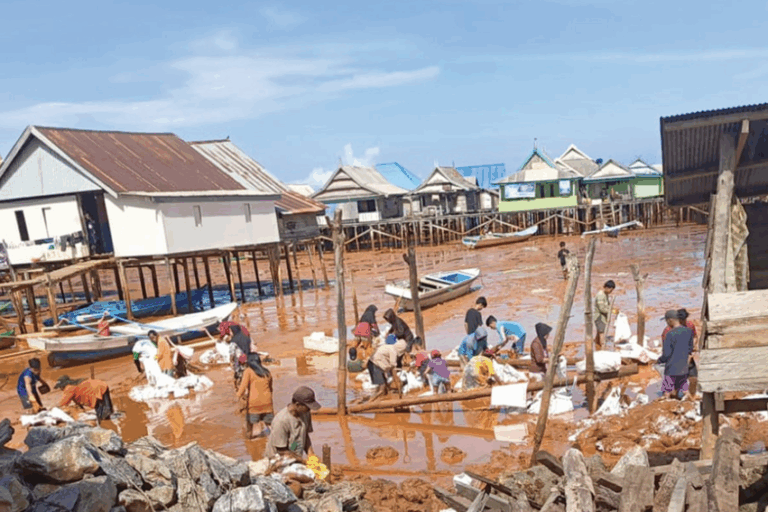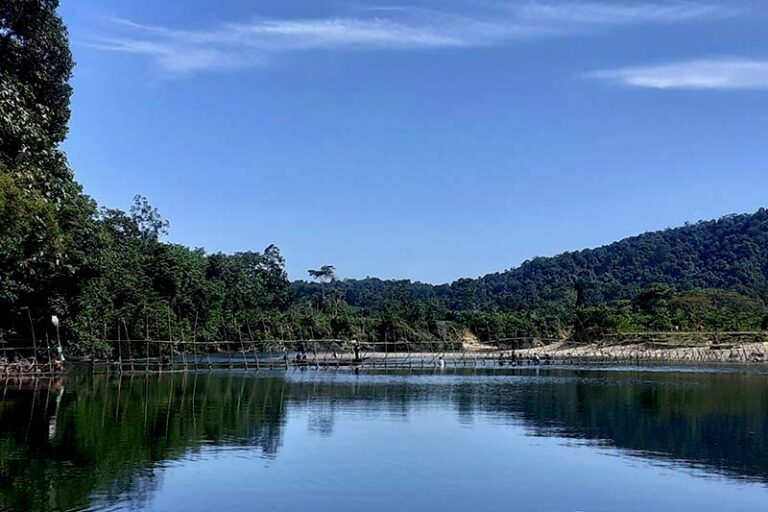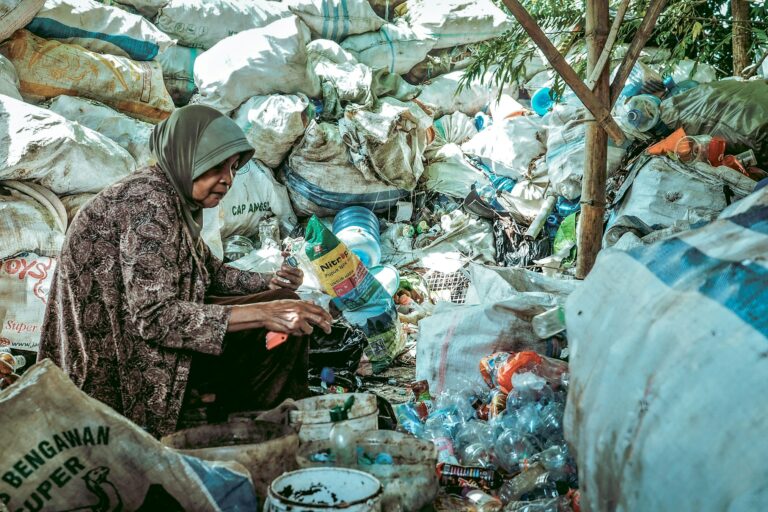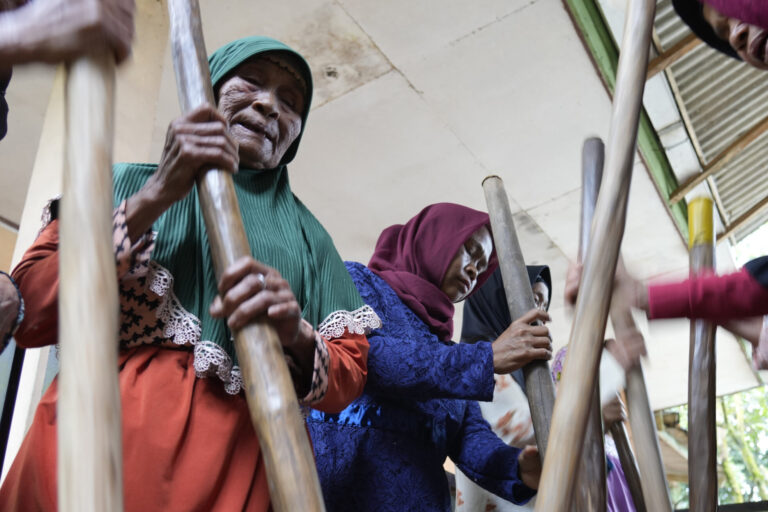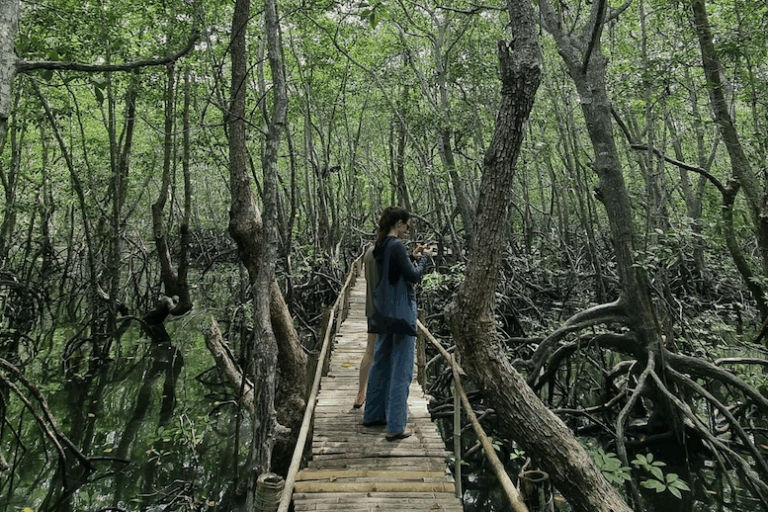- Indonesia’s garbage crisis is growing, with illegal dumping and unmanaged waste threatening communities, tourism, and ecosystems — as seen in the unsanctioned disposal of nearly 200 truckloads of trash near a popular beach in Yogyakarta.
- Despite a 2008 law banning open dumping, enforcement has long been delayed, but as of April 2025, the central government has officially ordered the closure of 343 landfills and threatened jail time for noncompliant local officials.
- Local governments are scrambling to comply, with some cracking down on illegal dumping, promoting waste sorting, or offering cash incentives — though problems like corruption, poor infrastructure, and public resistance to waste separation persist.
- Experts say lasting solutions require public cooperation, better funding, and consistent enforcement, as Indonesia struggles to change long-standing attitudes and behaviors toward waste management.
Haryanto surveys a sandy patch the size of roughly half a soccer field. Overlooked by a 40-meter (130-foot) lighthouse, the clearing is a stone’s throw from the Pacific Ocean, where the surf pummels Pandansari Beach — a pristine stretch lined with casuarina trees about an hour’s drive south of the Indonesian city of Yogyakarta.
But here, directly under the 66-year-old’s feet: 1,800 cubic meters of garbage — nearly 200 dump truck loads — of household, industrial and even hospital waste, Haryanto says.
According to Haryanto, a one-time manager with the state electricity monopoly PLN, the garbage appeared unannounced last December. Some 18 months prior to that, 10 times that amount landed on a second, bigger site about 4 kilometers (2.5 miles) away in a similar manner.
“This is a tourist area. There was no warning. It just appeared,” Haryanto tells Mongabay.
Haryanto now heads a local group called Forum Peduli Gadingsari, named after his village in the district of Bantul and intended to “watch out for government mismanagement,” as he puts it.
“There was no environmental review. There were no permits. What if there was a tsunami? How do they manage the leachate? This is an environmental crime,” he says.
For at least two decades, Indonesian governments have struggled to come to grips with their growing mountains of waste, with much of it dumped illegally.
More than 35% of all of Indonesia’s garbage — some 11 million metric tons last year — was deemed unmanaged, finding its way into rivers, ravines, even along the side of busy thoroughfares, according to the National Research and Innovation Agency (BRIN).
In January, an estimated 70 metric tons of plastic washed onto Jimbaran Beach on the island of Bali, yielding unwelcome international attention during a busy holiday time. Those torrid headlines came a little more than a year after the island’s main dump, TPA Suwung, was ablaze for weeks due to a drier-than-usual rainy season.

Now Indonesia’s central government says it’s banning open dumping, in an effort to pressure local governments to in turn get households to steer organic and recyclable waste away from landfills.
In April, Indonesia’s environment minister, Hanif Faisol Nurofiq, shuttered the country’s 343 landfills like Suwung, where trash is dumped and sometimes buried without treatment.
“The government’s order is not a ‘love letter’; this is a serious letter to manage everything,” Nurofiq was quoted as saying in May, referring to the ban. Some landfill sites are being monitored for six months to ensure they are complying. Local officials who ignore the ban face upward of a year in prison.
Some local governments appear to be on board.
In a speech in front of 2,000 village heads on July 11, Bali Governor I Wayan Koster pressed his audience to redouble their efforts to sort household waste and ban single-use plastics to limit how much garbage ends up in landfill.
The effort picks up from a similar failed effort during Koster’s first term. This time, Koster, who was reelected in November, is promising 1 billion rupiah ($61,000) to local governments that are able to manage their own garbage by Jan. 1, 2026. That’s the carrot. The stick comes in the form of withheld provincial funds to regions that miss the deadline.
Some 60% of the more than 3,400 metric tons of trash the island produces each day comes from households. Failing to address the island’s mounting garbage problem at its source puts the island’s tourism economy at risk, Koster said.
“If you fail to manage waste in your respective villages, you fail to protect Bali,” Koster said in a statement.
“There is no other choice; we must succeed.”
But the ban has many other local governments scrambling. Policy fixes include burning waste and cracking down on litterbugs.
The latest electricity blueprint includes a sliver of generating capacity from burning garbage. In Palembang, South Sumatra province, the city government has installed CCTV to spy on would-be dumpers. Offenders risk as long as three months in jail or a maximum fine of 50 million rupiah ($3,000) — more than a year’s salary for anyone earning the minimum wage.
The ban has also been an opportunity for graft.
In April, Wahyunoto Lukman, the head of the environment department in the city of South Tangerang, on the outskirts of Jakarta, was arrested for allegedly pocketing part of a 76 billion rupiah ($5 million) contract he helped arrange to haul garbage away and dispose of it — legally. The first part of the agreement he honored.
But for the second half, police say Lukman conspired to dump the rubbish at half a dozen private properties that were not permitted for landfill around the city. Police caught onto the alleged scam when neighbors complained.

Sorting through sordid garbage
In general, Indonesian households and businesses balk at sorting their own trash, or paying higher fees for others to do it. Rubbish is often wet with organic waste, making it tough to burn — and polluting.
A factory turning garbage into burnable pellets in North Jakarta has been delayed due to complaints from neighbors of foul-smelling smoke — a product of processing soggy refuse — emanating from the site.
“People feel they are already paying taxes,” Wiratni Budhijanto, a professor of chemical engineering at Gadjah Mada University in Yogyakarta, tells Mongabay.
“That means they think it’s the government’s job to take it away.”
Wiratni helped organize a campus-wide composting effort that has reduced waste going into landfills by two-thirds, she says. In February, participating departments organized a contest for the best-designed composter. The 5 million rupiah ($300) prize for first place was split three ways, including to the Faculty of Architecture for a composter for a vertical garden.
“Dealing with garbage is a problem for all of us,” Wiratni says.
For many, though, attitudes toward who should be responsible for sorting through waste has changed little since more than 140 people were killed in 2005 when a wall of garbage in Cimahi, east of Jakarta, collapsed onto a neighborhood of scavengers.
The 2008 law stemming from that calamity required local governments to develop plans to reduce the volume of their waste by curbing single-use plastics as well as introducing recycling and composting. A ban on open dumping was due to go into effect by 2012.
But funding for services has been modest since then. Local waste-sorting stations were built but not maintained. Extensions to the 2012 deadline came early and often.

Despite April’s pronouncement that the central government will finally enforce the 2008 ban on open dumping, Bantul, along with the nearby city of Yogyakarta, has a monthly quota for the rest of the year to dump garbage into the enormous TPA Piyungan. The province of Yogyakarta had closed Piyungan in May 2024.
Haryanto says he’s been assured that the offending trash on the beach in Gadingsari will be included in Bantul’s quota. The district last week began removing the waste from Pandansari, ahead of a kite-flying festival planned in the area this month.
“There is nowhere else to put it but Piyungan,” Haryanto says, referring to the garbage.
“It’s unsafe here.”
Banner image: A woman sits under a tree surrounded by dry waste in Indonesia’s East Java province. Image by Bamban heru via Unsplash (Public domain).
Indonesia bets on ‘reuse’ to curb plastic waste and build a circular economy










